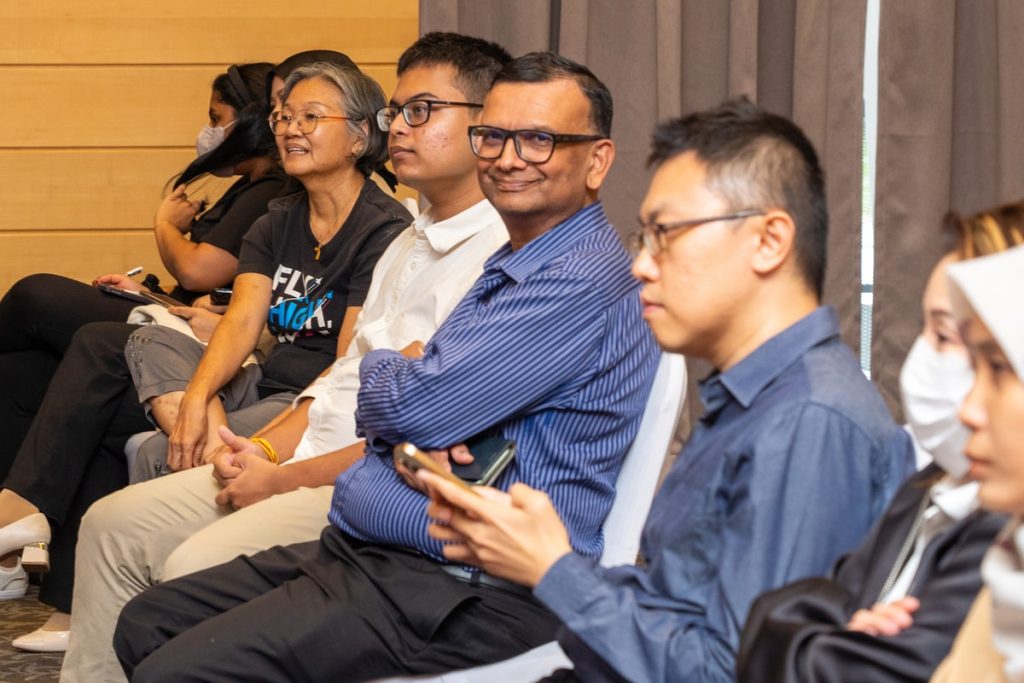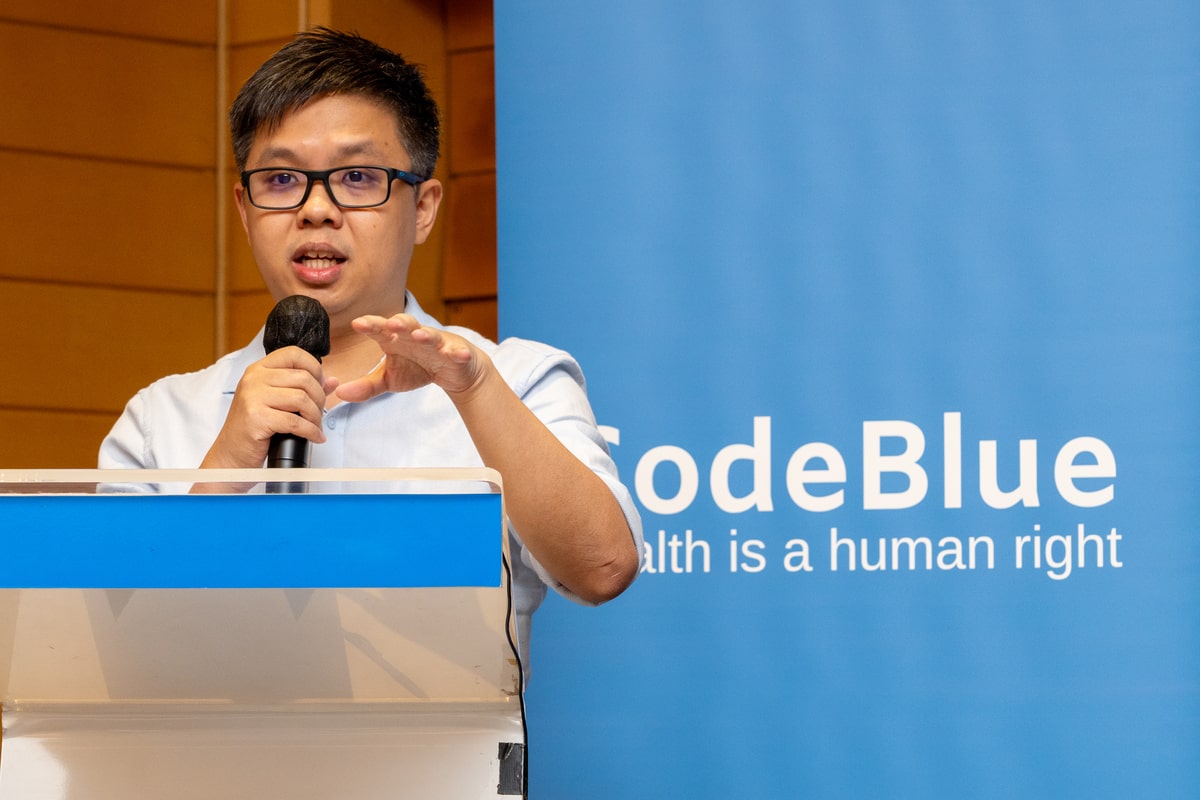KUALA LUMPUR, May 28 — A lawyer has argued that the Malaysian Medical Council (MMC) was never designed under the Medical Act 1971 to be independent from the government.
New Sin Yew, a senior advocate at AmerBON Advocates, pointed out that the Health director-general’s role as both head of the Ministry of Health (MOH) and president of the MMC, and with nearly half of MMC council members appointed by the health minister, indicate government control over the regulator of the medical profession.
“If you look at statutory bodies, which are designed to be independent, they will have no government control. The minister will have no say in its constitution – it’s the members,” New said at The Great Parallel Pathway Debate event co-organised by CodeBlue and the Malaysian Medics International (MMI) here last Saturday.
“But here, we have MMC that is under effective control of the MOH. To make matters absolutely crystal clear, you have Section 8 of the Medical Act which says that MMC must act in accordance with the general direction of the minister, so it’s designed to be that way.
“I think to look at MMC as being this independent regulator is a nonstarter because it’s not meant to be that. It is meant to be, for the lack of a better word, a subsidiary of MOH, to do what MOH is supposed to do.”
Section 8 of the Medical Act 1971 (Amendment 2012) stipulates that the minister may, from time to time, issue general directions not inconsistent with the Act or any regulations made under it, and the Council shall give effect to such directions.
New – who supported the debate motion to amend the Medical Act to recognise the parallel pathway – compared MOH’s control over the MMC and the MMC’s refusal to recognise certain postgraduate qualifications in medicine, like the FRCS Edinburgh in Cardiothoracic Surgery, to Gerstmann Syndrome.
Gerstmann Syndrome is a rare disorder with symptoms including difficulty in calculations, finger discrimination, writing, and distinguishing left from right.
“This (Section 8) shows that the MOH has clear and effective control over the MMC if it wants to. And these two bodies should be aligned,” New said.
“But the fact that they aren’t is problematic because you create a situation where prospective talents are getting caught in this Kafkaesque nightmare.”
The lawyer referenced the popular Netflix sci-fi series, 3 Body Problem, in which the home planet of an alien race, the San-Ti Ren, is located in a solar system with three suns. This three-sun system can be highly unstable, making conditions difficult for life, compared to our relatively stable solar system with only one sun.
“What we have here is this planet that we live in, us – society, as well as the poor doctors that went through the parallel pathway programme – we are on a planet where there are two suns, so the planet gets caught up in the gravitational pull of each sun, and it goes all over the place. Havoc. Civilisation on this planet ultimately suffers,” New said.
“I leave it to you to decide which are the two suns.”
Given the MMC’s non-recognition of the cardiothoracic surgery parallel pathway programme (PPP-CT) by a collaboration between the MOH and the Royal College of Surgeons of Edinburgh in the United Kingdom, New said the only solution is for the MOH to step in, remove that discretion, and recognise the PPP-CT through legislation.
“Those who are against the PPP-CT argue that the programme is illegal because you have to go through the Medical Act, the Medical Regulations 2017, the MQA Act 2007 (Act 679), the Private Higher Educational Institutions Act 1996 (Act 555), and the Universities and University Colleges Act 1971 (Act 30),” New noted.
“But let’s break this down. PPP-CT is illegal only because MMC does not recognise it. The MQA and all other legislations do not, in any way, curtail the MMC’s power to recognise the PPP-CT under Section 14B of the Medical Act.”
Section 14B of the Medical Act states various criteria for a person to be entitled to be registered as a specialist under the Act, including having attended specialised training in that specialty in a “recognised training institution” and holding a “recognised specialist qualification.”
“In fact, the consideration of these other legislations are totally irrelevant because of course a foreign programme by a foreign college is not going to follow our local legislations, regulating local institutions,” New said.
“It is evident that MMC, by giving this as a reason, is committing an error of law by taking into account, what I call, irrelevant considerations.”

New cited an example from the legal profession, where foreign-qualified lawyers called to the UK Bar can still complete pupilage in Malaysia as long as they go through nine months of pupilage – a pathway recognised under the Legal Profession Act 1976 (LPA) and not subject to the Legal Profession Qualifying Board Malaysia.
“To conclude, the issue here is not is not a medical problem. It is one of policy and governance because the MMC has refused to address what is a very real public concern, and the reasons have been disappointingly flimsy,” New said.
“We must now take the matter out of their hands and the only way to do this is through legislation.”
The motion at the Great Parallel Pathway Debate was “This House believes that the Medical Act should be amended to recognise the parallel pathway”.
Health Minister Dzulkefly Ahmad previously announced plans for an amendment bill, following MMC’s rejection last December of National Specialist Register (NSR) specialist registration applications by four graduates of the cardiothoracic surgery parallel pathway programme, due to non-recognition of the FRCS Edinburgh in Cardiothoracic Surgery.
New argued in support of the debate motion, while Galen Centre for Health and Social Policy chief executive Azrul Mohd Khalib argued against.








